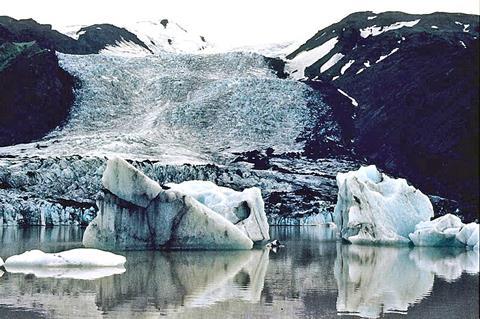A new study in the journal Scientific Reports offers a rare glimmer of hope in the face of climate change, suggesting glacial rivers and lakes may play a crucial role in mitigating the effects of methane, a powerful greenhouse gas that recent studies have shown emerging as glaciers melt in warming global temperatures.

This new study, led by Dickinson College Associate Professor of Environmental Studies Kristin Strock, looked at what happens when glaciers melt and release trapped methane, a potent greenhouse gas that contributes to climate change.
Strock, a 2019 National Geographic Explorer, led an all-female team of researchers including Dickinson students and scientists from the University of Wisconsin-Stout and U.S. Geological Survey. The team traveled to four sites on three different Icelandic glaciers to gather samples for the study.
Melting glaciers
The team found that when water from melting glaciers enters lakes and streams, the microbes living in those bodies of water can consume large amounts of methane being flushed from under the melting glaciers. Researchers found this natural process, called oxidation, may reduce atmospheric methane emissions by as much as 53 per cent. The study is one of only a handful of its kind, according to Strock.
READ MORE: Microscopic fungi enhance soil carbon storage in new landscapes created by shrinking Arctic glaciers
READ MORE: Ice cap teeming with thousands of microbe species
“Studies that span the land, ice, water and air are rare, because it requires an interdisciplinary and full ecosystem kind of perspective,” Strock said. “My co-researcher and former student, Rachel Krewson, proposed this study as part of her senior research thesis in environmental science. I’m immensely proud of Rachel and our entire team of women researchers for doing this critical work in a field that’s still male-dominated.”
Complex interactions
Strock’s team’s findings are significant because they provide new insights into the complex interactions between climate change, glacial systems and methane emissions. By incorporating methane oxidation into estimates of glacial methane emissions, scientists may be able to assess the impact of melting glaciers on the global climate more accurately.
This study was funded by a grant from the National Geographic Society and in-kind support from the U.S. Geological Survey alongside contributions from The Churchill Exploration Fund and the Dickinson College Research and Development Fund.




No comments yet